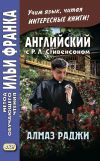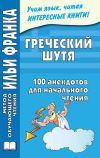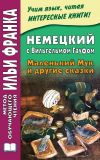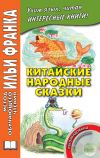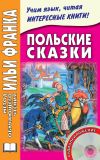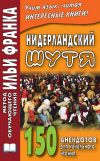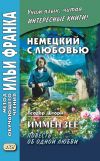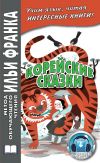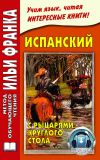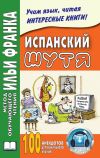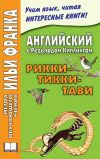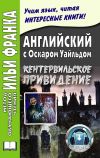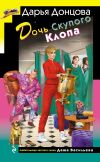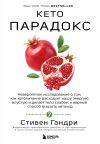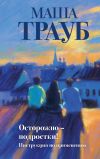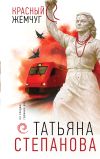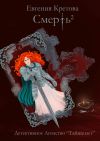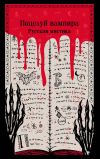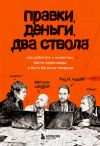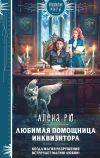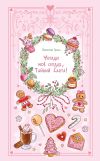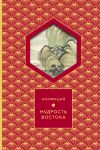Текст книги "Легкое чтение на английском языке. Дж. Свифт. Путешествия Гулливера / Jonathan Swift. Gulliver’s Travels"
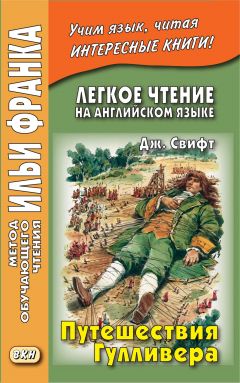
Автор книги: Джонатан Свифт
Жанр: Иностранные языки, Наука и Образование
Возрастные ограничения: +12
сообщить о неприемлемом содержимом
Текущая страница: 2 (всего у книги 16 страниц) [доступный отрывок для чтения: 4 страниц]

 I then made another sign that I wanted a drink. They knew that a small amount would not be enough, so they rolled a cask of wine towards my hand, then beat out the top. It held less than half a pint and I drank it all in one go. They brought me a second cask, which I drank in the same way. When I had performed these wonders they shouted with joy and danced on my body. I wanted to grab forty or fifty of the ones I could reach and throw them to the ground. But since they had treated me so kindly, I felt I should return their kindness.
I then made another sign that I wanted a drink. They knew that a small amount would not be enough, so they rolled a cask of wine towards my hand, then beat out the top. It held less than half a pint and I drank it all in one go. They brought me a second cask, which I drank in the same way. When I had performed these wonders they shouted with joy and danced on my body. I wanted to grab forty or fifty of the ones I could reach and throw them to the ground. But since they had treated me so kindly, I felt I should return their kindness.
After some time (спустя некоторое время), a person of high rank appeared in front of me (передо мной появилась/предстала особа высокого чина; rank – ряд; звание; чин; ранг). His Excellency came up to my face (его превосходительство подошел/приблизился к моему лицу; to excel – превосходить; отличаться, выделяться) and spoke to me for ten minutes (говорил /обращаясь/ ко мне в течение десяти минут; to speak) without any sign of anger (без каких-либо признаков гнева). He pointed (/при этом/ он указывал пальцем; point – точка; тонкий конец; острие; to point – показывать /пальцем, указкой/, указывать), as I found out afterwards (как я узнал потом; to find – находить, обнаруживать; to find out – /раз/узнать, выяснить), towards the capital city (по направлению к столице; capital – главный, основной; city – /большой/ город) about half a mile away (/находившейся/ на расстоянии около полумили; away – вдали; на удалении; прочь). They had agreed (они = человечки решили /меж собой/; agree – соглашаться; уславливаться, решить /по общему согласию/) that I should be taken there (что меня следует перевезти туда: «я должен быть доставлен…»; to take – брать; доставлять; вести; везти).

 After some time, a person of high rank appeared in front of me. His Excellency came up to my face and spoke to me for ten minutes without any sign of anger. He pointed, as I found out afterwards, towards the capital city about half a mile away. They had agreed that I should be taken there.
After some time, a person of high rank appeared in front of me. His Excellency came up to my face and spoke to me for ten minutes without any sign of anger. He pointed, as I found out afterwards, towards the capital city about half a mile away. They had agreed that I should be taken there.
I made a sign that I wanted to be set free (я сделал знак = показал жестами, что хочу, чтобы меня освободили: «хочу быть освобожденным»; to set – ставить, класть; приводить в определенное состояние; free – свободный). He shook his head (он покачал /отрицательно/ головой; to shake – трясти; потряхивать; качать /головой/) and held his hand to show (и поднял руку, показывая: «чтобы показать»; to hold – держать; удерживать /в каком-либо положении, состоянии/) that I must be carried as a prisoner (что я должен быть отвезен как пленник; to carry – нести; везти, перевозить). However, he made other signs to show (тем не менее другими знаками он показал: «сделал другие знаки, чтобы показать») that I would have enough to eat and drink (что я буду иметь достаточно еды и питья: «поесть и попить») and would be treated well (и со мной будут хорошо обходиться; to treat – обращаться, обходиться /с кем-либо как-либо/).

 I made a sign that I wanted to be set free. He shook his head and held his hand to show that I must be carried as a prisoner. However, he made other signs to show that I would have enough to eat and drink and would be treated well.
I made a sign that I wanted to be set free. He shook his head and held his hand to show that I must be carried as a prisoner. However, he made other signs to show that I would have enough to eat and drink and would be treated well.
I thought again of trying to break my bonds (я снова подумал о /том, чтобы/ попытаться разорвать свои узы). But when I remembered the pain of their arrows on my face and hands (но когда я вспомнил боль от их стрел на лице и руках), I indicated (я показал /знаками/) that they could do with me what they pleased (что они могут делать со мной /все/, что пожелают). Soon after, I heard a general shout (вскоре после /этого/ я услышал общий возглас), “Peplom selan!” I could feel the threads on my left side being loosened (я почувствовал: «мог чувствовать», /как/ нити с левой стороны были ослаблены). I was then able to turn onto my right side (тогда я смог повернуться на правый бок; able – способный; to be able to… – мочь; иметь возможность; быть способным /сделать что-то/) and to relieve myself by passing water (и помочиться: «облегчиться, пустив воду») – which I did plentifully (что я сделал в изобилии; plenty – /из/обилие; множество, избыток). The people were amazed (люди были изумлены) and moved away to avoid the torrent (и отошли подальше, чтобы не попасть в поток: «избежать потока»; to move – двигаться, перемещаться). Then I fell fast asleep for about eight hours (потом я крепко уснул /и проспал/ около восьми часов; to fall – падать; впадать /в какое-либо состояние/; to fall asleep – заснуть). I was later told (позднее мне рассказали; to tell) that the doctors had put a sleeping potion in the casks of wine, by order of the Emperor (что врачи по приказанию императора подмешали сонного питья в бочки с вином; put – класть; помещать).

 I thought again of trying to break my bonds. But when I remembered the pain of their arrows on my face and hands, I indicated that they could do with me what they pleased. Soon after, I heard a general shout, “Peplom selan!” I could feel the threads on my left side being loosened. I was then able to turn onto my right side and to relieve myself by passing water – which I did plentifully. The people were amazed and moved away to avoid the torrent. Then I fell fast asleep for about eight hours. I was later told that the doctors had put a sleeping potion in the casks of wine, by order of the Emperor.
I thought again of trying to break my bonds. But when I remembered the pain of their arrows on my face and hands, I indicated that they could do with me what they pleased. Soon after, I heard a general shout, “Peplom selan!” I could feel the threads on my left side being loosened. I was then able to turn onto my right side and to relieve myself by passing water – which I did plentifully. The people were amazed and moved away to avoid the torrent. Then I fell fast asleep for about eight hours. I was later told that the doctors had put a sleeping potion in the casks of wine, by order of the Emperor.
These people are excellent builders (эти люди – превосходные строители). Five hundred carpenters and engineers set to work (пятьсот плотников и инженеров принялись за работу) to prepare their biggest vehicle ever (чтобы изготовить самую большую повозку, какую только им приходилось делать: «их самую большую повозку за все время»; vehicle – транспортное средство /любое/; ever – всегда; в любое время; когда-либо). It was a frame of wood about three inches from the ground (это была платформа из дерева = деревянная платформа /возвышавшаяся/ примерно на три дюйма от земли; frame – костяк, каркас; рама, несущая конструкция; конструкция, сооружение), about seven feet long and four feet wide (около семи футов в длину и четырех в ширину). It moved on twenty-two wheels (двигалась она на двадцати двух колесах). The main difficulty was how to lift me onto it (главная трудность была, как = состояла в том, чтобы поднять меня на нее).

 These people are excellent builders. Five hundred carpenters and engineers set to work to prepare their biggest vehicle ever. It was a frame of wood about three inches from the ground, about seven feet long and four feet wide. It moved on twenty-two wheels. The main difficulty was how to lift me onto it.
These people are excellent builders. Five hundred carpenters and engineers set to work to prepare their biggest vehicle ever. It was a frame of wood about three inches from the ground, about seven feet long and four feet wide. It moved on twenty-two wheels. The main difficulty was how to lift me onto it.
Eighty poles, each a foot high (восемьдесят столбов, каждый в /один/ фут высотой), were put up for this purpose (были установлены для этой цели). Very strong threads were tied by hooks (очень толстые нити были прикреплены крючками; to tie – привязывать, связывать; соединять, прикреплять) to many bandages around my neck (к многочисленным повязкам вокруг моей шеи), hands, body and legs (рук, туловища и ног). Nine hundred of the strongest men then pulled these threads (затем девятьсот самых сильных мужчин потащили эти нити) by pulleys fastened to the poles (при помощи шкивов/блоков, прикрепленных к столбам). In less than three hours (менее чем за три часа) I was lifted and placed on the vehicle (я был поднят и уложен на повозку), where I was tied down once more (где = к которой я был привязан снова: «еще раз»).

 Eighty poles, each a foot high, were put up for this purpose. Very strong threads were tied by hooks to many bandages around my neck, hands, body and legs. Nine hundred of the strongest men then pulled these threads by pulleys fastened to the poles. In less than three hours I was lifted and placed on the vehicle, where I was tied down once more.
Eighty poles, each a foot high, were put up for this purpose. Very strong threads were tied by hooks to many bandages around my neck, hands, body and legs. Nine hundred of the strongest men then pulled these threads by pulleys fastened to the poles. In less than three hours I was lifted and placed on the vehicle, where I was tied down once more.
I was told all this later (все это рассказали мне позже), for I lay in a deep sleep (так как я спал глубоким сном: «лежал в глубоком сне») it was happening (/когда/ это происходило). Fifteen hundred of the Emperor’s largest horses (пятнадцать сотен = полторы тысячи самых крупных императорских лошадей), each about four and a half inches high (вышиной около четырех с половиной дюймов каждая), then pulled me towards the city (потащили меня затем к городу = столице).
We marched for a long time that day (в тот день мы долгое время = много времени провели в дороге; to march – маршировать; двигаться колонной; выступать в походном порядке) and rested at night (а ночью отдыхали). There were five hundred guards on each side (по каждую сторону = с обеих сторон /от меня/ были = стояли /по/ пятисот часовых; guard – охрана, защита; часовой; караульный; конвоир), half with torches (половина с факелами), half with bows and arrows (/другая/ половина с луками и стрелами), ready to shoot me if I moved (готовые стрелять в меня, если я двинусь). We continued our march the next morning at sunrise (мы продолжили наш поход на следующее утро с восходом солнца; sun – солнце; rise – подъем; восход), and arrived at the city gates about noon (и прибыли к городским воротам около полудня). The Emperor and all his Court came out to meet us (император и весь его двор вышли нам навстречу: «встречать нас»).

 I was told all this later, for I lay in a deep sleep it was happening. Fifteen hundred of the Emperor’s largest horses, each about four and a half inches high, then pulled me towards the city.
I was told all this later, for I lay in a deep sleep it was happening. Fifteen hundred of the Emperor’s largest horses, each about four and a half inches high, then pulled me towards the city.
We marched for a long time that day and rested at night. There were five hundred guards on each side, half with torches, half with bows and arrows, ready to shoot me if I moved. We continued our march the next morning at sunrise, and arrived at the city gates about noon. The Emperor and all his Court came out to meet us.
There was a very old temple at this place (в этом месте был /один/ очень старый = древний храм), where they had decided I should stay (где = в котором, /как/ они решили, я должен был жить; to stay – оставаться; пребывать /где-либо/, жить). It was the largest building in the kingdom (это было самое большое здание в королевстве). It was no longer used as a temple (оно больше не использовалось в качестве храма) because a murder had taken place there some years before (потому что несколько лет тому назад там = в нем произошло убийство; to take place – иметь место; происходить, случаться). The main gate on the north side (главные врата /находящиеся/ на северной стороне) was about four feet high and almost two feet wide (были = имели около четырех футов в высоту и почти два фута в ширину). I could easily creep through it (я мог легко/свободно проползти через них). There was a small window not more than six inches from the ground on each side of the gate (по обе стороны: «на каждой стороне» от ворот /на расстоянии/ не более шести дюймов от земли было = располагалось /по/ маленькому окну). The Emperor’s smiths sent ninety-one chains (императорские = придворные кузнецы пропустили через левое окно /см. в конце предложения/ девяносто одну цепочку; to send – посылать; направлять; бросать, посылать /мяч и т. п./, пускать), each about the size of a European lady’s watch chain (каждая размером приблизительно с цепочку для часов /у/ европейской дамы), through the left window. These were locked to my left leg with thirty-six padlocks (они = цепочки эти были прикреплены к моей левой ноге тридцатью шестью висячими замками; lock – замок; запор; to lock – запирать на замок; соединять; сцеплять).

 There was a very old temple at this place, where they had decided I should stay. It was the largest building in the kingdom. It was no longer used as a temple because a murder had taken place there some years before. The main gate on the north side was about four feet high and almost two feet wide. I could easily creep through it. There was a small window not more than six inches from the ground on each side of the gate. The Emperor’s smiths sent ninety-one chains, each about the size of a European lady’s watch chain, through the left window. These were locked to my left leg with thirty-six padlocks.
There was a very old temple at this place, where they had decided I should stay. It was the largest building in the kingdom. It was no longer used as a temple because a murder had taken place there some years before. The main gate on the north side was about four feet high and almost two feet wide. I could easily creep through it. There was a small window not more than six inches from the ground on each side of the gate. The Emperor’s smiths sent ninety-one chains, each about the size of a European lady’s watch chain, through the left window. These were locked to my left leg with thirty-six padlocks.
On the other side of the temple (напротив храма: «на другой стороне от храма»), about twenty feet away (на расстоянии около двадцати футов), was a five-foot high tower (была = стояла башня пяти футов вышины). From here, the Emperor and the lords of his Court could see me (с нее: «отсюда» император и лорды его двора могли наблюдать за мной: «видеть меня») – or so I was told (или = по крайней мере мне так сказали), for I could not see them (потому что /сам/ я их видеть не мог). More than a hundred thousand people came from the town to see me (больше ста тысяч человек пришли из города, чтобы посмотреть на меня).

 On the other side of the temple, about twenty feet away, was a five-foot high tower. From here, the Emperor and the lords of his Court could see me – or so I was told, for I could not see them. More than a hundred thousand people came from the town to see me.
On the other side of the temple, about twenty feet away, was a five-foot high tower. From here, the Emperor and the lords of his Court could see me – or so I was told, for I could not see them. More than a hundred thousand people came from the town to see me.
When the workmen found I couldn’t break loose (когда рабочие нашли/убедились, /что/ вырваться я не смогу; to break – ломать; разрушать; рвануться; вырваться; loose – свободный; несвязанный), they cut all the strings that tied me (они обрезали все связывавшие меня веревки: «веревки, которые связывали меня»). I cannot describe the noise and astonishment of the people (не могу описать = не поддаются описанию шум и изумление людей) when they saw me get up and walk (когда они увидели, как я встал и хожу). The chains that held my left leg were about two yards long (цепи, приковывавшие: «которые удерживали» мою левую ногу, были около двух ярдов длины) and allowed me to walk that far (и позволяли мне ходить на такое расстояние: «так/настолько далеко»). They were fixed within four inches of the gate (они были прикреплены не дальше четырех дюймов от двери; within – в, внутри; не дальше чем, в пределах), so that I could also creep into the temple (так что/чтобы я мог также вползать в храм) and lie down at my full length (и ложиться/лежать /вытянувшись/ во весь рост: «длину»).

 When the workmen found I couldn’t break loose, they cut all the strings that tied me. I cannot describe the noise and astonishment of the people when they saw me get up and walk. The chains that held my left leg were about two yards long and allowed me to walk that far. They were fixed within four inches of the gate, so that I could also creep into the temple and lie down at my full length.
When the workmen found I couldn’t break loose, they cut all the strings that tied me. I cannot describe the noise and astonishment of the people when they saw me get up and walk. The chains that held my left leg were about two yards long and allowed me to walk that far. They were fixed within four inches of the gate, so that I could also creep into the temple and lie down at my full length.
2
When I got up (когда я встал = поднявшись /на ноги/), I looked around me and admired the view (я посмотрел вокруг себя и восхитился видом). The countryside was like a garden (местность была похожа на сад; country – страна; земля, территория; /the country/ деревня, сельская местность). Each field was like a flower bed (каждое поле было словно цветочная клумба; bed – кровать, постель; клумба; грядка). The tallest trees appeared to be about seven feet high (самые высокие деревья были, по-видимому, около семи футов высотой; to appear – появляться; предстать; производить впечатление; казаться). The town to my left looked like a painted scene in a theatre (город слева от меня выглядел как разрисованные декорации в театре; to paint – рисовать; красить, раскрашивать; scene – место действия; обстановка, окружение; декорации сцены).

 When I got up, I looked around me and admired the view. The countryside was like a garden. Each field was like a flower bed. The tallest trees appeared to be about seven feet high. The town to my left looked like a painted scene in a theatre.
When I got up, I looked around me and admired the view. The countryside was like a garden. Each field was like a flower bed. The tallest trees appeared to be about seven feet high. The town to my left looked like a painted scene in a theatre.
The Emperor came towards me on horseback (император подъехал ко мне верхом на лошади; horseback – спина лошади). The horse reared in fright (лошадь от страха встала на дыбы; to rear – поднимать/ся/; возвышаться; становиться на дыбы). I must have looked like a moving mountain (должно быть, я выглядел как движущаяся гора). However, His Majesty managed to calm the horse (однако его величество сумел успокоить лошадь) and kept his seat (и удержался в седле: «удержал/сохранил свое место»; to keep). His servants held the bridle (его слуги держали узду) while he got down (пока он сходил /с лошади/). He looked at me with great admiration (он смотрел на меня с большим удивлением/восхищением), but remained beyond the chain that tied me (но оставался за пределами /длины/ связывавшей = приковывавшей меня цепи). He told the servants to give me food and drink (он приказал слугам подать мне еду и питье; to tell – говорить; приказывать). They pushed the food forward on vehicles with wheels (они подкатывали: «приталкивали» еду на тележках: «перевозочных приспособлениях с колесами»; forward – вперед, дальше), until I could reach it (пока = на такое расстояние, чтобы я мог достать их). Twenty of these vehicles were filled with meat and ten with drink (двадцать из этих тележек были наполнены едой и десять питьем/напитками; meat – мясо; еда, пища /как противоположность питью/).

 The Emperor came towards me on horseback. The horse reared in fright. I must have looked like a moving mountain. However, His Majesty managed to calm the horse and kept his seat. His servants held the bridle while he got down. He looked at me with great admiration, but remained beyond the chain that tied me. He told the servants to give me food and drink. They pushed the food forward on vehicles with wheels, until I could reach it. Twenty of these vehicles were filled with meat and ten with drink.
The Emperor came towards me on horseback. The horse reared in fright. I must have looked like a moving mountain. However, His Majesty managed to calm the horse and kept his seat. His servants held the bridle while he got down. He looked at me with great admiration, but remained beyond the chain that tied me. He told the servants to give me food and drink. They pushed the food forward on vehicles with wheels, until I could reach it. Twenty of these vehicles were filled with meat and ten with drink.
The Emperor was taller than the others of his Court (император был выше всех своих придворных: «других /особ/ своего двора»). He looked strong and manly (он выглядел сильным и мужественным), with an arched nose (с /своим/ орлиным: «изогнутым» носом; arch – арка; дуга; to arch – изгибать/ся/ дугой) and slightly dark skin (и слегка смуглой кожей). He held his head high (он высоко держал голову) and moved with grace (и изящно: «с грацией/изяществом» двигался). He was about twenty-eight years old (ему было около двадцати восьми лет). His seven years as Emperor had been happy (его семь лет в качестве императора = те семь лет, в течении которых он царствовал, были счастливыми/благополучными) and generally victorious (и большей частью победоносными; victory – победа).

 The Emperor was taller than the others of his Court. He looked strong and manly, with an arched nose and slightly dark skin. He held his head high and moved with grace. He was about twenty-eight years old. His seven years as Emperor had been happy and generally victorious.
The Emperor was taller than the others of his Court. He looked strong and manly, with an arched nose and slightly dark skin. He held his head high and moved with grace. He was about twenty-eight years old. His seven years as Emperor had been happy and generally victorious.
I lay down on my side (я лег на бок) in order to see him better (для того чтобы лучше его видеть). He was dressed in a very plain and simple style (одет он был в очень скромной и простой манере; plain – простой; ясный; незамысловатый, обыкновенный, без украшений), partly European and partly Oriental (частью европейской, частью азиатской). He wore a helmet of gold with jewels and a feather (/на голове/ у него был золотой шлем с драгоценными камнями и пером; to wear – носить /одежду, парик, бороду и т. п./; иметь надетым). He held his sword in his hand (он держал в руке шпагу; sword – меч; шпага, рапира; сабля и т. п.), ready to defend himself if I broke loose (готовый защищать себя, если бы я разорвал цепь: «сорвался/освободился»). The sword was almost three inches long (шпага была длиной почти в три дюйма). He spoke in a very clear voice (говорил он очень чистым/отчетливым голосом; clear – светлый, ясный; звонкий, отчетливый; чистый /без изъянов/). I could hear what he said (я мог слышать /то/, что он говорил; to say), even when I was standing up (даже стоя: «когда я стоял прямо»).

 I lay down on my side in order to see him better. He was dressed in a very plain and simple style, partly European and partly Oriental. He wore a helmet of gold with jewels and a feather. He held his sword in his hand, ready to defend himself if I broke loose. The sword was almost three inches long. He spoke in a very clear voice. I could hear what he said, even when I was standing up.
I lay down on my side in order to see him better. He was dressed in a very plain and simple style, partly European and partly Oriental. He wore a helmet of gold with jewels and a feather. He held his sword in his hand, ready to defend himself if I broke loose. The sword was almost three inches long. He spoke in a very clear voice. I could hear what he said, even when I was standing up.
His Majesty said several things to me (его величество несколько раз говорил мне что-то: «сказал мне несколько вещей»; thing – вещь; нечто, что-то), and I answered him (а я ему отвечал). But neither of us could understand a word (но ни один из нас не понимал: «/не/ мог понять» ни слова) the other said (/из того, что/ говорил другой). There were some priests and lawyers present (там /же/ находились несколько священников и юристов; present – присутствующий; law – закон) – as I guessed by their style of dress (как я заключил по покрою их одежды; guess – /от/гадать; догадаться; style – стиль, манера; род, тип; фасон; покрой). They were told to speak to me (им было приказано заговорить со мною = вступить со мной в разговор; to tell – говорить; велеть, приказывать). I replied in German, Latin (я отвечал по-немецки, по-латыни), in French, Spanish and Italian (по-французски, по-испански и по-итальянски), but without result (но это не привело ни к чему: «без результата»). I was then left with a strong guard (потом я был оставлен вместе с сильным караулом) to protect me from the crowd (для того чтобы защитить меня от толпы).

 His Majesty said several things to me, and I answered him. But neither of us could understand a word the other said. There were some priests and lawyers present (as I guessed by their style of dress). They were told to speak to me. I replied in German, Latin, in French, Spanish and Italian, but without result. I was then left with a strong guard to protect me from the crowd.
His Majesty said several things to me, and I answered him. But neither of us could understand a word the other said. There were some priests and lawyers present (as I guessed by their style of dress). They were told to speak to me. I replied in German, Latin, in French, Spanish and Italian, but without result. I was then left with a strong guard to protect me from the crowd.
I sat on the ground by the door of my house (я сидел на земле у двери моего дома). Some people began shooting arrows at me (некоторые люди начали пускать в меня стрелы; to shoot – стрелять). When one arrow just missed my left eye (когда одна стрела чуть не попала мне в левый глаз; to miss – промахнуться, не попасть /в цель/), the guards took hold of six of these people (стражники схватили шестерых из этих людей). They were tied up and put into my hands as a punishment (они были связаны и положены = их связали и передали в качестве наказания в мои руки; to put – класть, ставить; помещать; to punish – наказывать). I put five of them into my coat pocket (я положил пятерых из них в карман кафтана; coat – пиджак; китель; куртка и т. п.; пальто). I pretended I was going to eat the sixth one alive (/и/ сделал вид, /будто/ собираюсь съесть живьем шестого; to be going to… – собираться, намереваться /что-либо сделать/; может употребляться для выражения будущего времени). The poor man screamed terribly (бедный человечек ужасно/отчаянно завизжал). The officers were terrified (офицеры пришли в ужас; officer – чиновник, должностное лицо; офицер; командир; полицейский), especially when they saw me take out my penknife (особенно когда увидели, что я вынул из кармана перочинный нож; pen – перо /писчее/; ручка). But I cut the strings that tied him (но я разрезал связывавшие его веревки), put him gently on the ground (осторожно поставил его на землю; gently – мягко, нежно; осторожно, спокойно) and away he ran (и он /тут же/ убежал). I took the others out of my pocket one by one (по одному я вынул остальных из кармана). I could see both the soldiers and the people were very grateful for my mercy (я увидел, что и солдаты, и народ были /мне/ очень благодарны за мое милосердие; both – оба, обе; both… and… – и… и…; как…, так и…).

 I sat on the ground by the door of my house. Some people began shooting arrows at me. When one arrow just missed my left eye, the guards took hold of six of these people. They were tied up and put into my hands as a punishment. I put five of them into my coat pocket. I pretended I was going to eat the sixth one alive. The poor man screamed terribly. The officers were terrified, especially when they saw me take out my penknife. But I cut the strings that tied him, put him gently on the ground and away he ran. I took the others out of my pocket one by one. I could see both the soldiers and the people were very grateful for my mercy.
I sat on the ground by the door of my house. Some people began shooting arrows at me. When one arrow just missed my left eye, the guards took hold of six of these people. They were tied up and put into my hands as a punishment. I put five of them into my coat pocket. I pretended I was going to eat the sixth one alive. The poor man screamed terribly. The officers were terrified, especially when they saw me take out my penknife. But I cut the strings that tied him, put him gently on the ground and away he ran. I took the others out of my pocket one by one. I could see both the soldiers and the people were very grateful for my mercy.
During the next two weeks (в течение следующих двух недель), the Emperor ordered a bed to be made for me (по приказанию императора для меня была изготовлена постель: «император приказал /чтобы/ постель была сделана…»). Six hundred beds were brought and sewn together (шестьсот матрасов были привезены и сшиты вместе; to bring – приносить, привозить; приводить; доставлять; to sew). One hundred and fifty made up the length and width (сто пятьдесят /штук/ составляли один слой: «длину и ширину»; to make up – составлять; пополнять, возмещать), and when quadrupled (и когда четыре слоя были уложены друг на друга; to quadruple – учетверять, увеличивать в четыре раза; делать в четырех экземплярах), were enough to keep me off the hard stone floor (/то этого/ было достаточно для того, чтобы оградить меня от твердого каменного пола; to keep off – держать в отдалении; не подпускать). They gave me the same number of sheets, blankets and covers (мне дали такое же количество простыней, одеял и покрывал; to give), enough to make me comfortable (достаточное для того, чтобы я мог удобно устроится; comfortable – уютный, удобный).

 During the next two weeks, the Emperor ordered a bed to be made for me. Six hundred beds were brought and sewn together. One hundred and fifty made up the length and width, and when quadrupled, were enough to keep me off the hard stone floor. They gave me the same number of sheets, blankets and covers, enough to make me comfortable.
During the next two weeks, the Emperor ordered a bed to be made for me. Six hundred beds were brought and sewn together. One hundred and fifty made up the length and width, and when quadrupled, were enough to keep me off the hard stone floor. They gave me the same number of sheets, blankets and covers, enough to make me comfortable.
The Emperor and his Court held frequent meetings (император и его двор держали частые советы; to meet – встречаться; собираться; meeting – встреча; собрание, заседание) to decide what to do with me (чтобы решить, что со мной делать), I was told afterwards (/так/ мне рассказали позже). They were worried about my breaking loose (они беспокоились, как бы я не разорвал цепи; «были озабочены/обеспокоены по поводу моего /возможного/ освобождения») and about the amount of food I needed (и относительно количества еды, /в котором/ я нуждался). They considered poisoning me (они подумывали /о том, чтобы/ отравить меня; to consider – рассматривать, обсуждать; обдумывать, продумывать; poison – яд, отрава; to poison – отравлять), but then it was pointed out (но потом приняли во внимание: «было указано/отмечено») that such a large carcass might produce a plague in the kingdom (что такая большая туша /мертвое тело/ может вызвать чуму в королевстве).

 The Emperor and his Court held frequent meetings to decide what to do with me, I was told afterwards. They were worried about my breaking loose and about the amount of food I needed. They considered poisoning me, but then it was pointed out that such a large carcass might produce a plague in the kingdom.
The Emperor and his Court held frequent meetings to decide what to do with me, I was told afterwards. They were worried about my breaking loose and about the amount of food I needed. They considered poisoning me, but then it was pointed out that such a large carcass might produce a plague in the kingdom.
When two army officers told the Court (когда два армейских офицера сообщили двору = при дворе) how I had treated the six criminals (как я поступил с шестью злоумышленниками/преступниками) who had shot arrows at me (которые пускали в меня стрелы; to shoot), His Majesty was very impressed (на его величество это произвело большое впечатление; to impress – штамповать; оттискивать; запечатлевать, оставлять след /в сознании/; производить впечатление, поражать). He ordered all the villages around the city (он обязал все деревни вокруг столицы) to deliver six cows and forty sheep every morning for my food (доставлять каждое утро /по/ шесть быков и сорок баранов для моего пропитания; food – пища, питание; еда), together with bread and wine (вместе с хлебом и вином). This was paid for by His Majesty’s Treasury (/все/ это оплачивалось казначейством его величества; to pay). The Emperor lived on his own land (император жил на доходы со своих собственных землевладений; to live on smth. – жить на какие-либо средства, за счет чего-либо) and seldom demanded any income from his subjects (и редко требовал каких-либо выплат от своих подданных; income – поступление /чего-либо/; доход, приход, прибыль).

 When two army officers told the Court how I had treated the six criminals who had shot arrows at me, His Majesty was very impressed. He ordered all the villages around the city to deliver six cows and forty sheep every morning for my food, together with bread and wine. This was paid for by His Majesty’s Treasury. The Emperor lived on his own land and seldom demanded any income from his subjects.
When two army officers told the Court how I had treated the six criminals who had shot arrows at me, His Majesty was very impressed. He ordered all the villages around the city to deliver six cows and forty sheep every morning for my food, together with bread and wine. This was paid for by His Majesty’s Treasury. The Emperor lived on his own land and seldom demanded any income from his subjects.
Six hundred people became my servants (шестьсот человек стали моими слугами; to become). Tents were built for them on each side of my door (для них были построены палатки по обеим сторонам моей двери). Three hundred tailors were ordered to make me a suit of clothes (тремстам портным было приказано изготовить = сшить для меня костюм; suit of clothes – /полный/ комплект одежды, костюм) and six teachers were employed to teach me their language (и шестеро учителей были назначены для обучения: «чтобы учить» меня их языку; to employ – предоставлять работу; нанимать). During the next three weeks I made great progress (в течение следующих трех недель я сделал большие успехи) and began to talk to the Emperor (и начал беседовать с императором) who often visited me (который часто меня посещал). I learned enough of their language (я выучил их язык достаточно: «достаточно из их языка») to ask him for my freedom (для того, чтобы попросить у него /даровать мне/ свободу). He answered that it was a matter of time (он отвечал, что это вопрос времени; matter – вещество; материя; тема, вопрос, дело) and that I must (и что я должен) “lumos kelmin desmar lon emposo”, or “swear peace with him and his kingdom (или = что означает «дать клятву сохранять мир с ним и его королевством»; to swear – клясться; присягать; peace – мир /отсутствие войны, вражды/)”.

 Six hundred people became my servants. Tents were built for them on each side of my door. Three hundred tailors were ordered to make me a suit of clothes and six teachers were employed to teach me their language. During the next three weeks I made great progress and began to talk to the Emperor who often visited me. I learned enough of their language to ask him for my freedom. He answered that it was a matter of time and that I must “lumos kelmin desmar lon emposo”, or “swear peace with him and his kingdom”.
Six hundred people became my servants. Tents were built for them on each side of my door. Three hundred tailors were ordered to make me a suit of clothes and six teachers were employed to teach me their language. During the next three weeks I made great progress and began to talk to the Emperor who often visited me. I learned enough of their language to ask him for my freedom. He answered that it was a matter of time and that I must “lumos kelmin desmar lon emposo”, or “swear peace with him and his kingdom”.
Not long afterwards (вскоре: «не долго» после этого) I agreed to be searched by two of his officers (я дал согласие /на то/, чтобы меня обыскали два его чиновника/ офицера: «быть обысканным двумя из его…»; to search – искать; обыскивать). Whatever they took from me would be given back when I left the country, I was told (мне было сказано, /что/ все, что они отберут у меня, будет возвращено: «отдано обратно», когда/если я покину /их/ страну; whatever – все что; что бы ни). I picked up the two officers (я взял/поднял двоих = обоих чиновников; to pick up – поднимать, подбирать; забирать) and put them into my coat pockets (и положил их в карманы кафтана).
